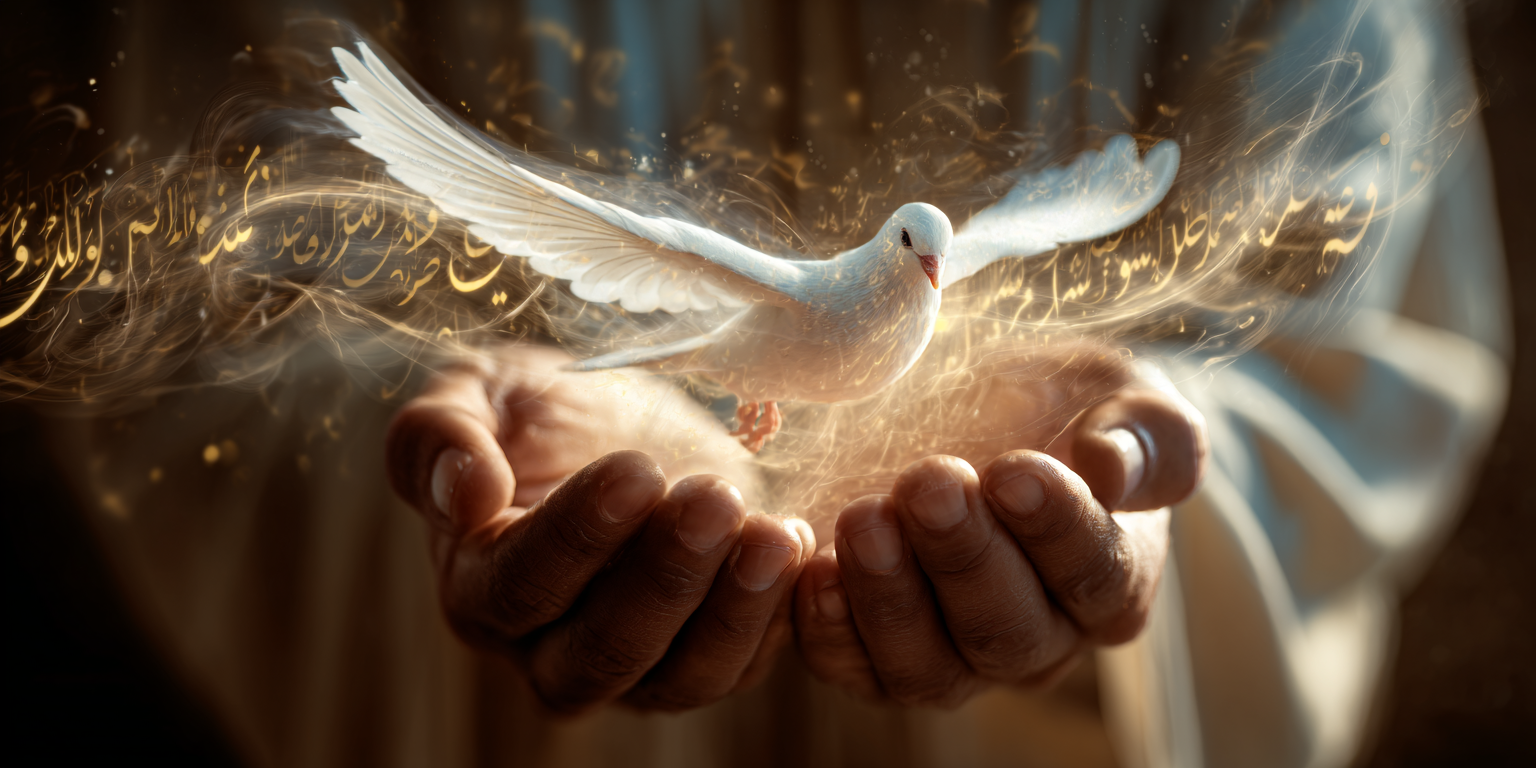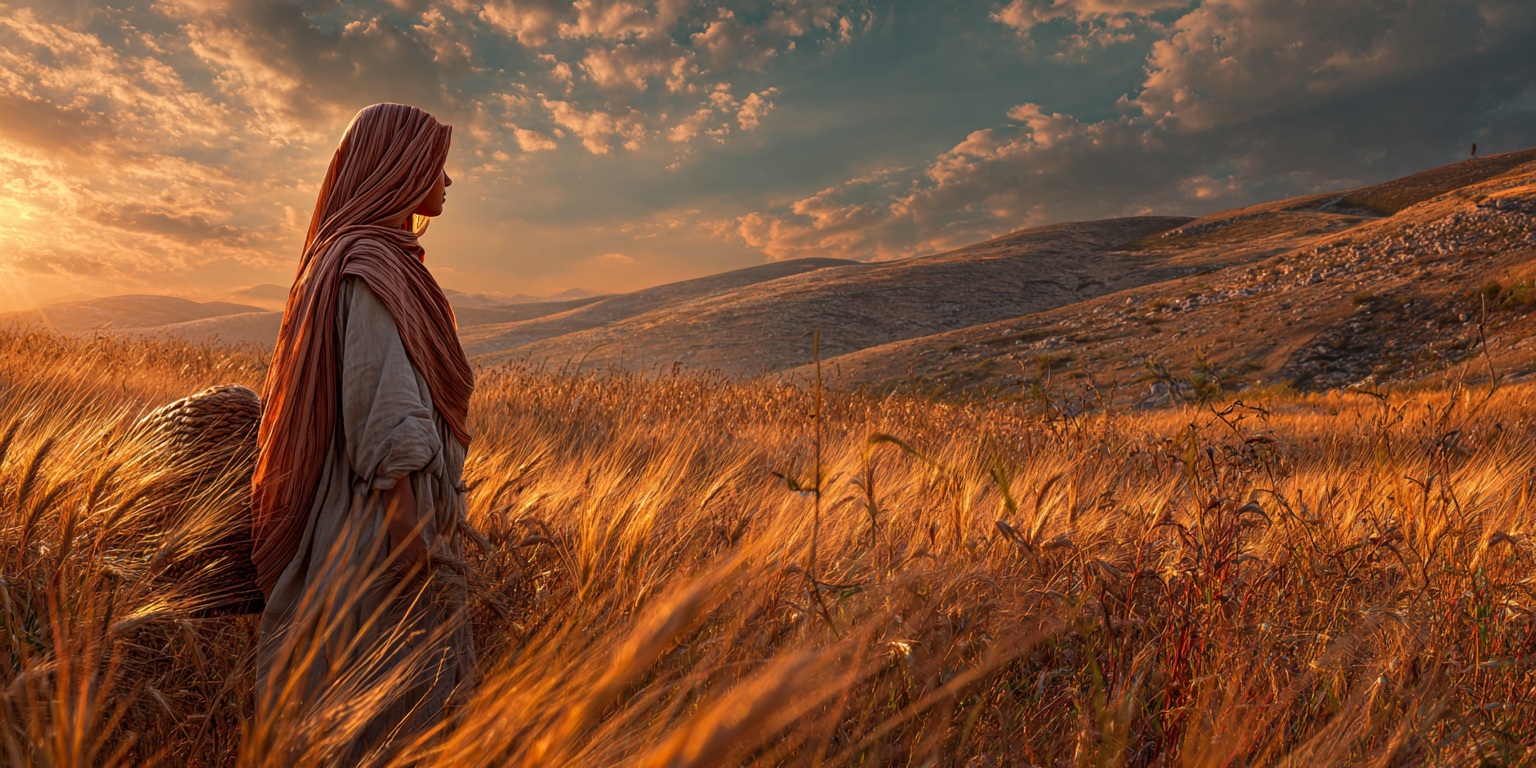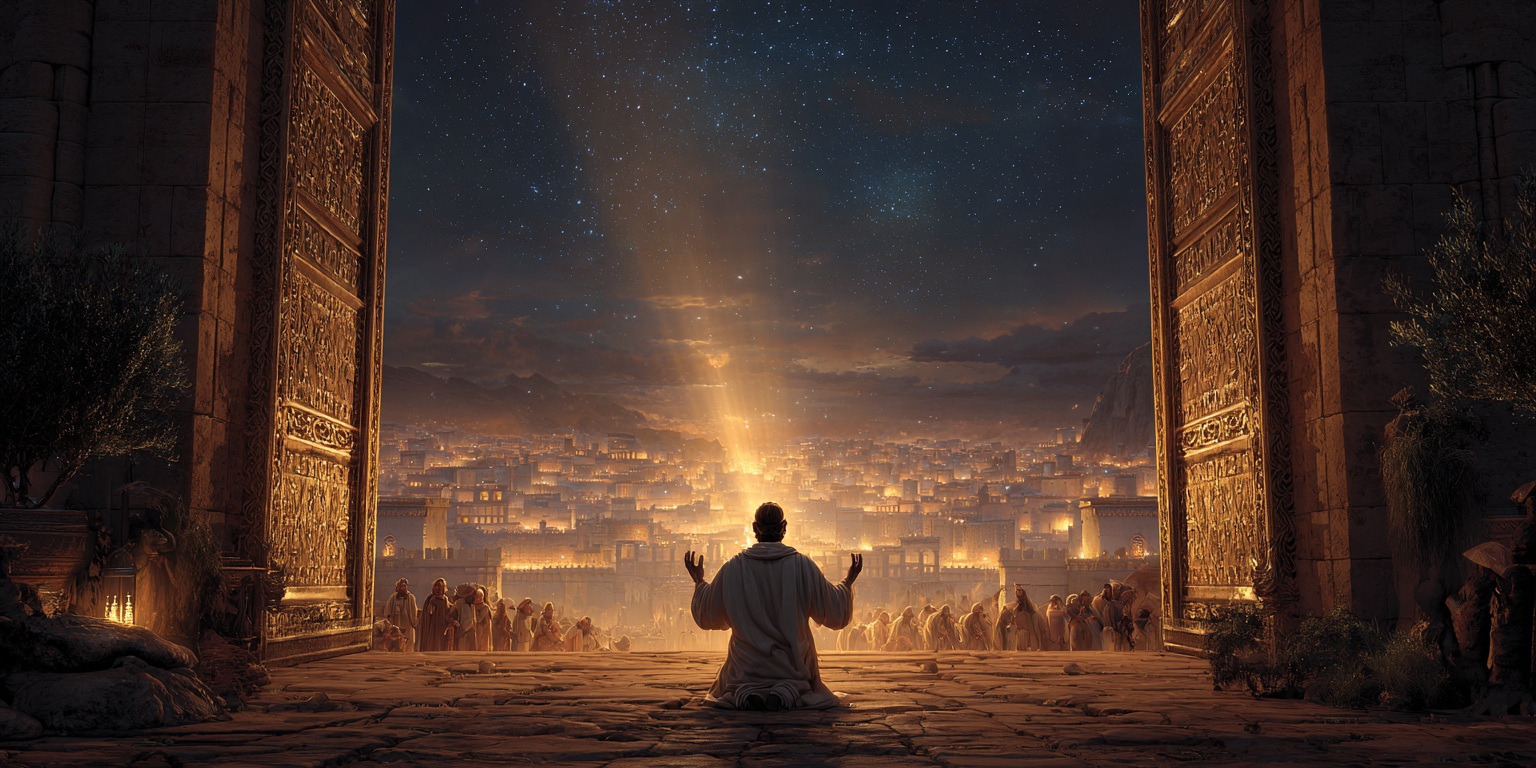

There was a relative of Naomi’s husband, a man of great wealth, of the family of Elimelech. His name was Boaz. Ruth 2:1
Dear People Who Keep Company with God,
The Book of Ruth has been called the most beautiful short story ever written. It holds a special place in my heart because my mother’s name was Ruth. Whenever I see fields being harvested in autumn, it reminds me of this story, and I revisit it. Recently, I have been reflecting on the significance of Boaz in the narrative. Boaz is a powerful type of Christ, providing valuable insights into His plan for our lives. The story highlights through four key moments the role of Lord Jesus Christ, as the ultimate Boaz figure, in unlocking our potential and fulfilling our destiny.
Ruth and Boaz meet for the first time in a harvest field (Ruth 2:1-23). This field represents where we first encounter Jesus and His saving grace. Here, we are invited to find refuge in His abundant fields, where our needs are met. Like a diligent farmer, the Lord nourishes our hearts and satisfies our spiritual thirst. This is where we find comfort and divine protection. Some of us only visit the harvest field occasionally, seeking to fulfill our needs but settling for less than our full potential. God desires more than just a place in our lives; He longs to be our true home, where we find complete fulfillment.
The next meeting of Ruth and Boaz takes place at the threshing floor (Ruth 3:1-12), where grain is separated from the chaff, symbolizing Christ’s refining work in our lives. In this intense space, we learn that what we desire most – love, peace, joy, and blessings – may be hidden. God’s presence may feel different here, even unfamiliar. We face a difficult decision about our spiritual journey during the darkest hours on the threshing floor. Do we press on to reach the purpose that Jesus Christ has called us to fulfill and wants us to discover (Philippians 3:12) or retreat to the familiar field, where our immediate needs are met, but we will never find proper rest and lasting blessings?
On the threshing floor at midnight, Ruth decides to pursue a deeper relationship with Boaz. But there is a significant obstacle in her way, as someone else has a legitimate claim on Ruth. This requires a resolution at the city gates, which serve as the city’s governance center. Boaz meets with the elders and the man with a claim on Ruth (Ruth 4:1-10). What occurs at the city gates mirrors what God wants to achieve in our lives. He wants to challenge the claims we, others, and our past have over ourselves. Like the man with the claim in Ruth’s story, we can’t provide the fulfillment we seek. But God invites us to surrender our self-sovereignty and allow Him to guide our steps toward a more prosperous and purposeful life.
Finally, Boaz takes Ruth into his home, and she becomes his wife (Ruth 4:13). They are blessed with a son who becomes King David’s grandfather (Ruth 4:21-22), with whom Jesus is a direct descendant. Today, the church is still on her journey towards her destiny, the beautiful bride of Revelations 19:7-8. As the Scottish revivalist George McDonald said, “This is and has been the Father’s work from the beginning – to bring us into the home of His heart. This is our destiny.” The Scriptures are woven together to lead us to this most significant destination. Much like Boaz’s earnest pursuit of Ruth, the central theme of the Bible revolves around Christ’s relentless pursuit of us. This divine pursuit culminates when we encounter the fullness of God’s presence, power, and purpose. This is God’s plan for each of us.
Many Blessings, BW








